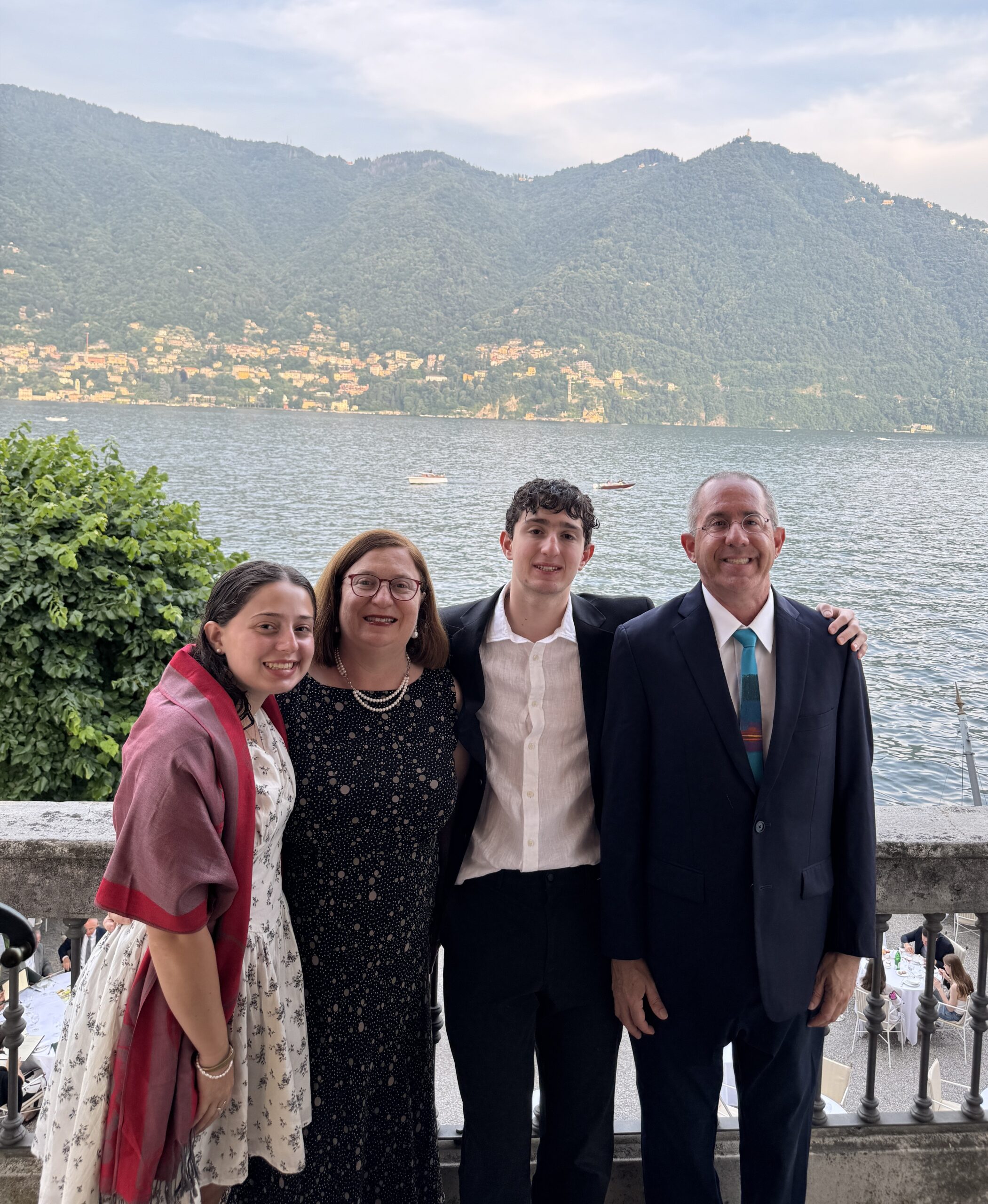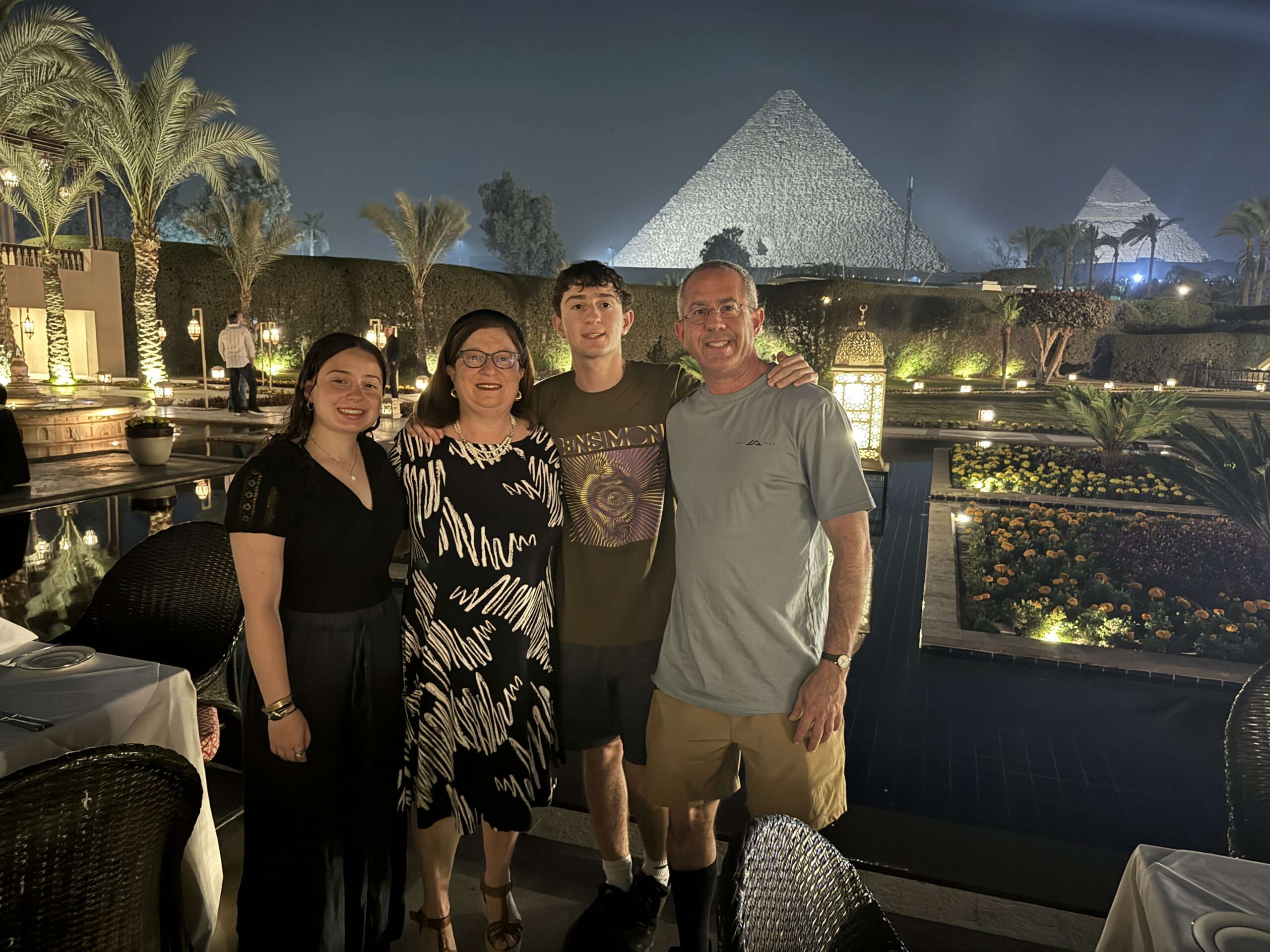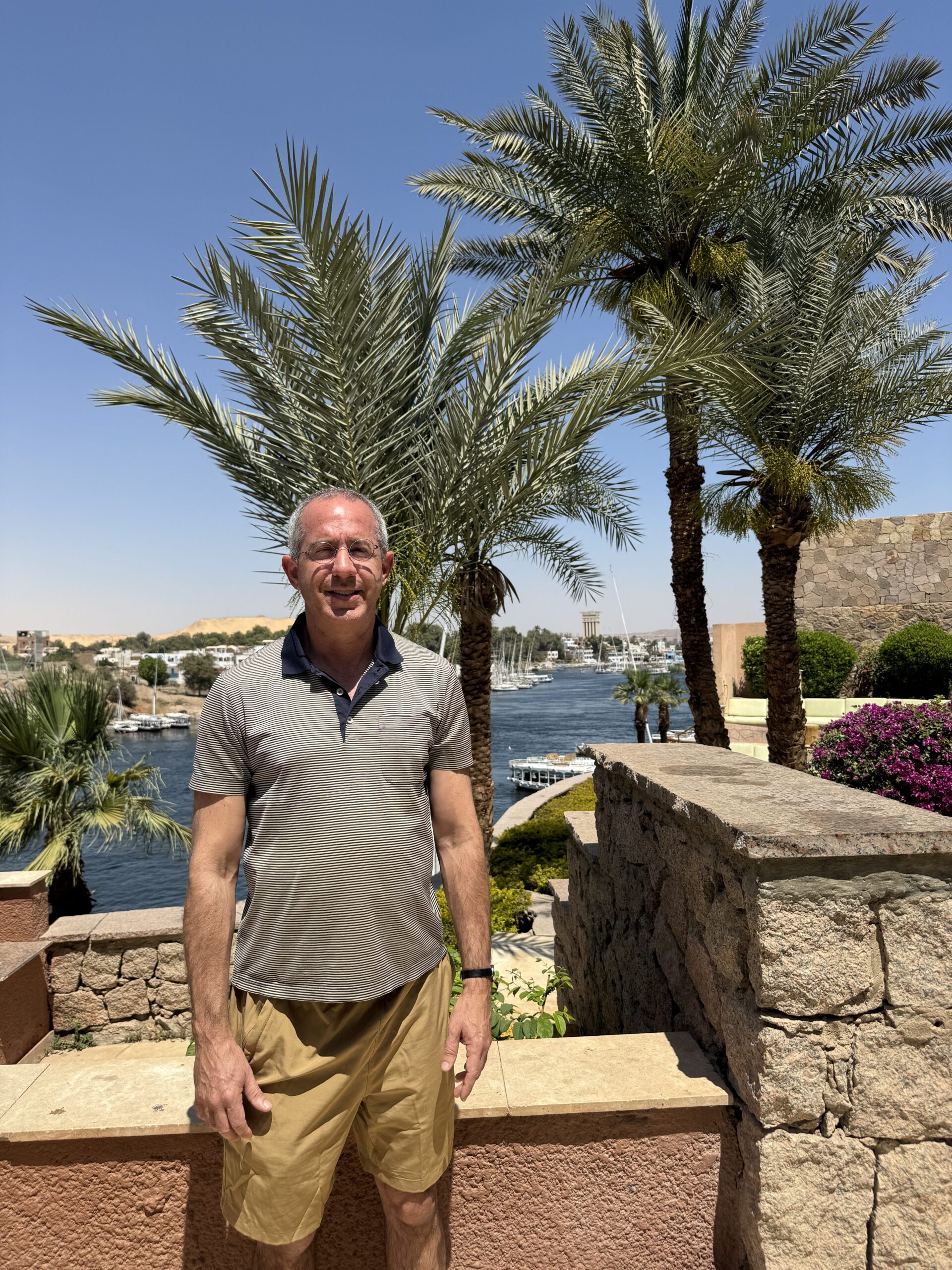Next Generation Middle Easterners: An Undiscovered Planet for American Jewry
Surprise and consternation when the late king of Jordan suddenly passed over his long-tapped heir and appointed a 36 year old unknown as his successor was the first wave of things to come. The Moroccan succession similarly put forth a thirty-something and the leading contender in Syria also heralds from that age bracket. Palestinians in the know also are signaling that Arafat’s successor will be a consensus choice made by those around him but from among what is commonly thought of as the Next Generation.
These under-40’s are given more nation-building responsibilities than their Western counterparts but most of the leading writers, machers and policymakers in Israel and in the US writing opinion columns about Middle East politics or influencing policy have few or no contacts in this sector of the Arab World. This insight is vital to assessing risk and opportunity in the Middle East; without it one may as well be on a different planet. For the past 5 years, I have dedicated significant time and resources toward monitoring this sector and maintaining personal relationships with leading Next Generation people in the region, including several visits to Jordan, Lebanon, Saudi Arabia, Kuwait and the UAE (the most recent last month).
The most shocking thing I can report is the lack of passion to the debate concerning issues we in the US think are quite debatable and unsettled. This mirrors American Jewry’s disconnect with Israelis who are similarly bored with the whole process, think that nothing is really going on or is left to discuss and who, by and large, are resigned to the outcome of many issues that are, for public consumption, being negotiated. The reality is closer to the position that the endgame is clear, the various leaders know it, and it remains only to figure out when and how to go public.
If the preceding seems vague, let me spell it out. Discussions with even a conservative Saudi are not hair-raising — it is assumed that Israel will pull out of Lebanon and most of the Golan (the remaining spread on the positions concerning the Syrian border to be negotiated is roughly 2 miles apart), most of the refugees will essentially stay where they are in exchange for lots of American cash, and some kind of game will be played in Jerusalem where the city’s boundaries will double in size with the Arabs taking half and the Israelis taking the other half. Not much at this point to get excited about and most of Israel and its government are on board with this even if the ribbon cutting ceremonies haven’t been arranged and the existence of negotiations has not been revealed. American Jews are still largely left to think that these items have yet to be negotiated and that any of these concessions might be suicidal (the columnists are still fighting the next war). Keeping the appearance of progress to a minimum has helped both sides keep their radicals apathetic and prevent acts of sabotage, but the elites on both sides know the score.
Beyond the Palestinian population, the average Arab doesn’t care much about the peace process and has no particular regard for Palestinians. However, Jerusalem holds weight to Moslems and they want to see Arab rights with regard to holy places. Also, even if a Jew is higher than a Palestinian on the totem pole (ie: in Kuwait), it is too much to expect an Arab to reconcile himself to Israel when the Palestinian and Syrian issues are unresolved. War, with bankrupt Arabs and no Russians to pay the bills, is out of the question, particularly when nobody really cares anymore. Caveat: Even with peace, don’t expect Western-oriented liberal secular Israelis (the clear majority in Israel who would ever look beyond its borders) to mix well with an Arab populace which is, though Western-influenced at the elite level, a much more conservative oriented society that has little in common with the Israeli mentality or economy. Put simply: the people are too different and have nothing in common. They will never make good friends. Our insistence upon chumminess is interpreted as a threat to their socially and economically insulated societies. Stop expecting it and we won’t be disappointed.
The best prospects from the Arab World’s Next Generation are for proper business relationships and straightforward information exchanges with talented and Western-educated elites who are broad-minded and pragmatic in nature. They exist aplenty and are interested at all levels in contacts with Jews and Israelis and closely monitor the nuances of Israeli politics and society, something they respect. Surveys show an alarming degree of ignorance and negative feelings by young Israelis toward Arabs. That Israelis think they know Arabs because they see them on buses and in yards is not knowing people any more than Whites know Blacks because they see them on subways. The challenge is for Israelis and American Jews to become better informed to better sort out the real from the exaggerated, at least with regard to Arab intentions and the level of threat.
Jewish Week Column 2
Discerning Reality Amid Abstraction: Humility Needed
Sectors of the American Jewish community, fed a generation of views from rabbis, lay leaders, media and Israeli diplomats of a different era, are misreading signals of opportunity and threat with regard to Israel and insist on maintaining opinions about abstractions. Professional lecturers report Jewish groups to be the most opinionated and the least informed.
Most have never visited Israel or see a narrow portion of it during guided tours. Almost none have ever met Arabs in a social setting. Most don’t know but a few Israelis. The Golan and the West Bank are abstractions. Few know the territory and almost none have or ever will serve in the Israeli army. Wars past and future will not be theirs in flesh and blood though Israeli sons and daughters can count on their moral support for waging them.
Their Reality: They fear invasion of Israel by tanks and armies and a Palestinian state putting such capabilities right on Israel’s doorstep. Palestinians with guns is an existential threat to Israel. Giving up the Golan and the West Bank is national suicide. The Arabs have not kept any agreements so far and any future agreements are futile. Their text books and media prove that they hate us.
My Reality: War is unaffordable, and the Arabs and Russians are bankrupt. The 1967 and 1973 wars were paid by Russia and we now know they occurred because the Russians manipulated the Arabs into these wars. There are no armies with thousands of tanks to invade; the Egyptian army is still not impressive. Palestinians with handguns and a police force (a polite way of saying unemployed workers on the government payroll) are no threat to Israel. A million Saudi Beduin marching across the desert in sandals and carrying daggers are sitting ducks. The Israeli Army’s strategic estimate this year rated tank invasion as a third level threat. Both sides have acted in reciprocal manners since Oslo; there are no angels on either side. Textbook and media incitement issues have been oversimplified and manipulated.
Existential threat is not from tanks but missiles, and the source is from freelancers, not states. So far neither Syria, Iraq or Iran have shown irrational and self-destructive behavior, meaning crossing the line and putting their own lives and/or countries at risk for the privilege of sticking it to Israel with unconventional weapons. Syria’s armed forces are a bluff and the Israelis know it. The Iraqis are 500 miles away, have been apart from this conflict for most of the century and are disinterested. The scuds during the Gulf War were an isolated and calculated incident and reflected rational acts on the part of Iraq and were thus ignored by Israel’s Shamir, no bleeding heart liberal. The Iranians truly don’t care and its leaders carry on anti-zionist activities as a public diversion (and continue to deal with Israel privately) but their revolution will end within 5 years and the traditionally friendly and public relationship with Israel will reassert itself with that non-Arab nation. Thus Barak no longer talks about threats from Iran.
Scary? An Osama bin Laden launching some kind of nuclear device from a boat 20 miles off Tel Aviv. Unstoppable even in a perfect peaceful world just as in New York or London. Israel’s air defense shield is a make-work feel-good program that won’t work in a real emergency. Either this means that we never make peace because we cannot protect against threat 100% or we make peace to gain normalcy as a country, maintain rational vigilance and reduce threat by 95%, and trust God to protect us against the other 5%.
Emotional sideshows, such as Hebron and the retreat from Maon, involve the fewest Israelis and are more problem than solution. Most players are American immigrants and off-the-wall types that have zero constituency in Israel. Most of the building that generates headlines is being funded and spearheaded by foreigners. These foreigners don’t relate to sabra-Israelis and the feeling is mutual. Native Israelis very much mind babysitting these foreign-planted castles in the sky.
Barak was elected by a majority of settlers who are non-ideological secular native Israelis who do not look at the Bible as we do. Here too, we are opinionated about abstractions. Consider: 99% of American Jews can’t translate prayers or Bible readings, meaning they don’t know what they’re saying or hearing, even if they pray everyday. Most Orthodox Jews forget to care that they don’t know. An Israeli prays in his native language. No matter what the American does, he will never “get it” the same as an Israeli.
Is Israel where we act out our fantasies and ideologies vicariously through money and mercenary, or do we support whatever the majority of Israelis decide they want for themselves and do we respect their ability to reach correct strategic and political decisions and trust God to protect them? Do we “write off” Israel when it doesn’t do what we want?
Though I am an emotional Zionist who visits often and donates to charities, it is not my country. I don’t serve in its army, vote or pay taxes. Neither do my colleagues from Ron Lauder to the chatroom writers. The repair of distorted ability to discern abstraction from reality begins with humility. American Jews have a role to play in the Israeli enterprise — not to impose our desires, but to be well informed, contribute to the general welfare, behave civilly and pray for its well-being.





